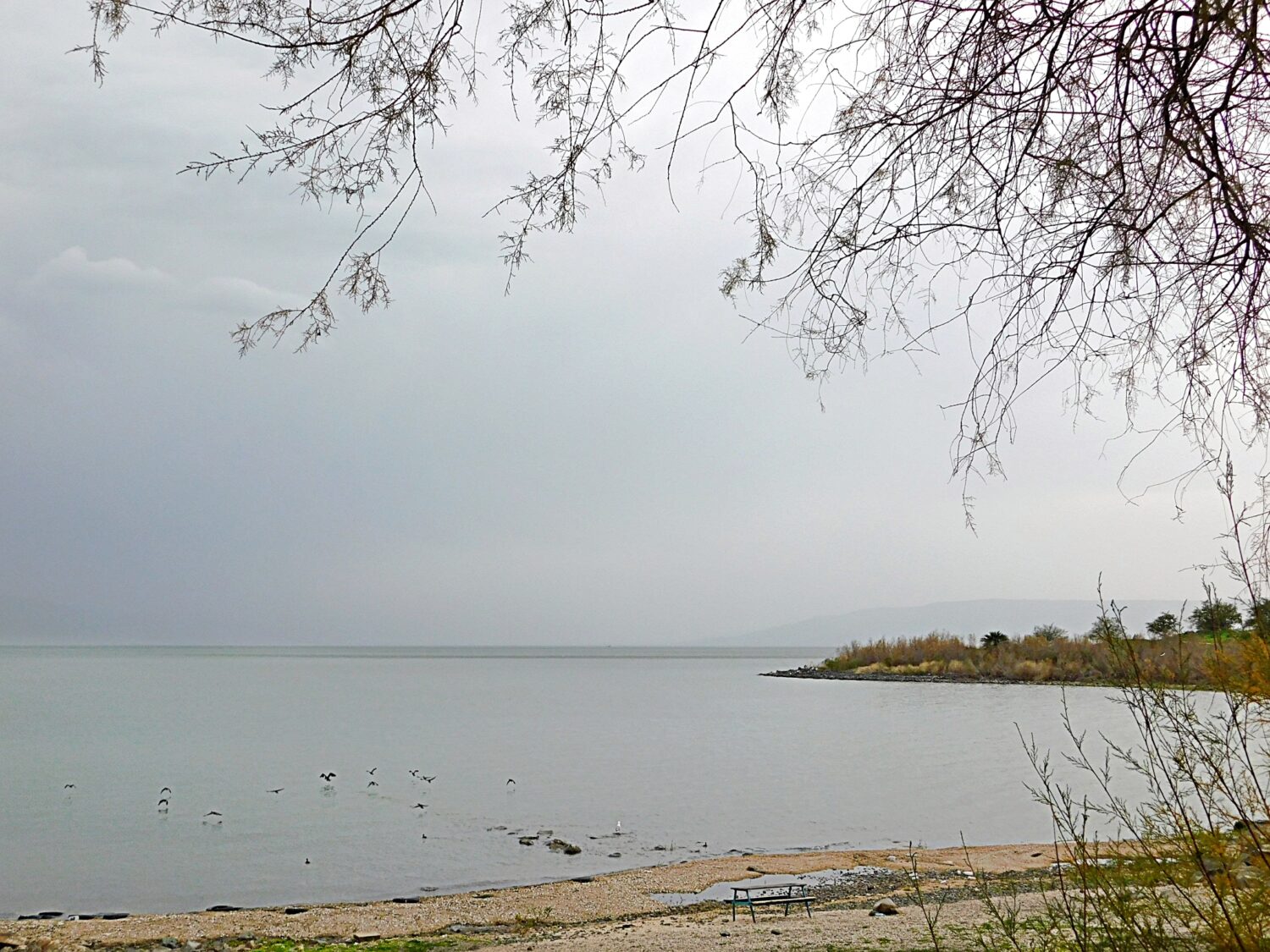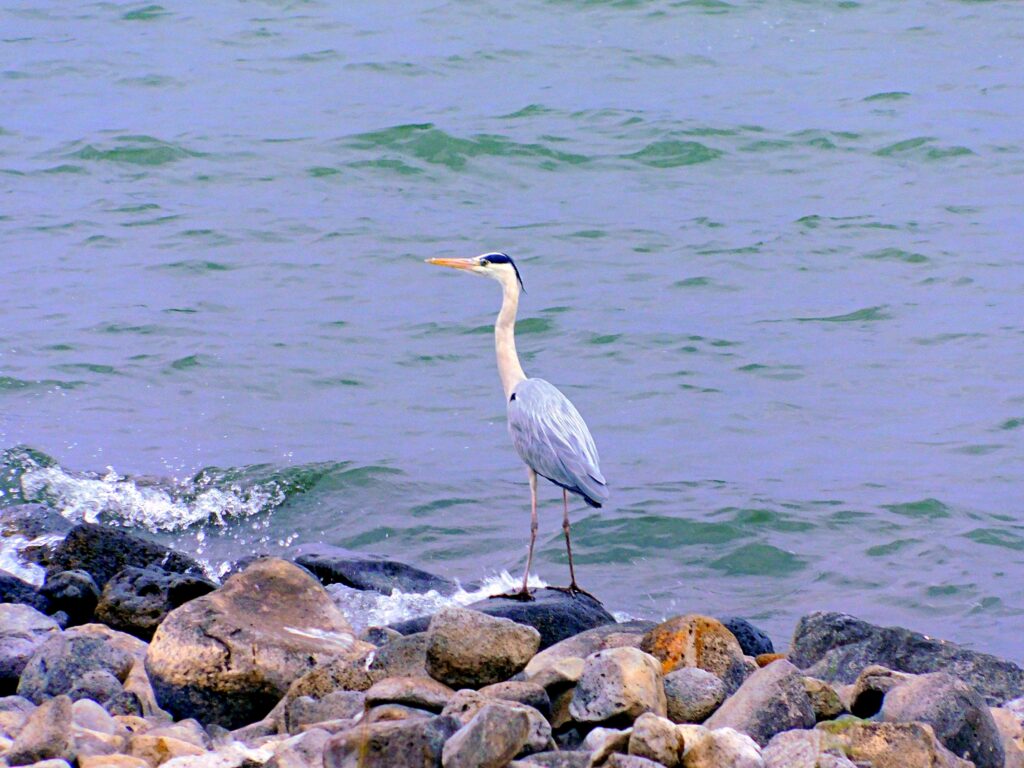#TomorrowIsSunday (EN+ES) | Why did Jesus live as if he were homeless?


Gospel Trail at the Sea of Galile, PhotoCredit Sr Amata CSFN
13th Sunday of Ordinary Time, Year C
Sunday, June 26, 2022
Gospel of Luke 9:51-62
EN: https://bible.usccb.org/bible/readings/062622.cfm
You can download the commentary on the Gospel and beautiful photos:
https://www.academia.edu/82195838/Why_did_Jesus_live_as_if_he_were_homeless?source=swp_share
*
XIII Domingo del Tiempo Ordinario, Año C
Domingo, 26 de junio de 2022
Evangelio de San Lucas 9,51-62
ES: https://bible.usccb.org/es/bible/lecturas/062622.cfm
1 Jesus’ honesty
“Foxes have dens and birds of the sky have nests but the Son of Man has nowhere to rest his head,” Jesus says of himself. We find the answer to why this is so in today’s Gospel.
2 Key words
Jesus resolutely determined to journey to Jerusalem.
Literally the text says that Jesus “made his face steadfastly set.” This is a Semitic way of expressing that someone has made a final decision. For Jesus, it means a decision to do God’s will and save people through his passion, death and resurrection in Jerusalem. Everything else was subservient to this aim in Jesus’ life. Love for every person urged Him on.
But they would not welcome him [in Samaria] because the destination of his journey was Jerusalem.
The Samaritans held that the only place of divine worship was on Mount Garizim in Samaria, and the Jews claimed it was in Jerusalem. Hence the unfriendliness, which was not directed personally at Jesus, but was the result of the ongoing argument.
To another he said, “Follow me.” But he replied, “Lord, let me go first and bury my father.”
Freedom is necessary to follow Jesus. Today’s Gospel speaks of three kinds of freedom: freedom from comfort, freedom from material things, and freedom from “looking back.”
One person asked to follow Jesus, but he said nothing when he was told that “the Son of Man has no place to lay his head.”
The second wanted to bury his father earlier. Some commentators explain that what he really wanted was to inherit some property first, after his father’s death, and then he could follow Jesus.
The third person wanted to say goodbye to his family and loved ones first. This is reminiscent of the calling of Elisha, who asked to be able to say goodbye to his parents. Elijah agreed to this request and told him to return quickly. Jesus’ response is different. Why? Jesus is greater than the Old Testament prophets and his mission is more important. So, greater should be the commitment of his disciples. Jesus says plainly: those who want to follow him should do so unconditionally.
3 Today
Today’s Gospel shows Jesus’ love for every person. He does everything for others, not for himself. At the same time, he is honest in saying that whoever wants to follow him should do like him. Love for each person and inner freedom are two conditions of following Jesus.

Jesus Trail at the Sea of Galilee, PhotoCredit Sr Amata CSFN
*
1. La honestidad de Jesús
“Las zorras tienen madrigueras y los pájaros, nidos; pero el Hijo del hombre no tiene en dónde reclinar la cabeza”, dice Jesús de sí mismo. La respuesta al porqué de esto se encuentra, por ejemplo, en el Evangelio de hoy.
2. Palabras clave
Jesús decidió ir a Jerusalén.
El evangelio dice literalmente que Jesús “puso su rostro impasible, duro”. Es una forma semítica de expresar que alguien ha tomado una decisión definitiva. Para Jesús, significa la decisión de cumplir la voluntad de Dios y salvar a la gente mediante su pasión, muerte y resurrección en Jerusalén. Todo estaba subordinado a esto en la vida de Jesús. El amor por la humanidad le impulsó.
Pero los samaritanos no quisieron recibirlo, porque supieron que iba a Jerusalén.
Los samaritanos sostenían que el único lugar de culto a Dios era el monte Garizim en Samaria, mientras que los judíos el de Jerusalén. De ahí la inhospitalidad, que no se dirigía personalmente a Jesús, sino que era el resultado de la disputa que había entre los dos pueblos.
A otro, Jesús le dijo: «Sígueme». Pero él le respondió: «Señor, déjame ir primero a enterrar a mi padre».
Seguir a Jesús requiere libertad. El evangelio de hoy habla de tres tipos de la libertad: libertad de la comodidad, de las cosas materiales y de “mirar atrás”.
Un hombre quería seguir a Jesús, pero no dijo nada cuando escuchó que “el Hijo del Hombre no tiene dónde reclinar la cabeza”.
El otro quería enterrar a su padre antes. Algunos comentaristas lo explican como un deseo de facto de heredar primero parte de los bienes de su padre, y luego poder irse.
El tercero quería despedirse primero de su familia y sus seres queridos. Esto recuerda a la llamada de Eliseo, que pidió poder despedirse de sus padres. Elías accedió a esta petición y le dijo que regresara rápidamente. La respuesta de Jesús es diferente. ¿Por qué? Jesús es más grande que los profetas del Antiguo Testamento y su misión es más importante, por lo que mayor debe ser el compromiso de sus discípulos. Jesús lo dice claramente: los que quieren seguirlo deben hacerlo incondicionalmente.
3. Hoy
El Evangelio de hoy es un testimonio del amor de Jesús por los seres humanos. Lo hace todo por los demás, no por sí mismo. Al mismo tiempo, es sincero para que quien quiera seguirle haga como Él. El amor a todo hombre y la libertad interior son dos condiciones para seguir a Jesús.

Jesus Trail at the Sea of Galilee, PhotoCredit Sr Amata CSFN
You can read also:
TomorrowIsSunday (EN+ES) | Corpus Christi. What is the miracle? >>>
#TomorrowIsSunday (EN+ES) | What does the Trinity teach us? >>>
#TomorrowIsSunday (EN+ES) | What does Jesus call the Holy Spirit? >>>
#TomorrowIsSunday (EN+ES) | How does Jesus continue to help us after the Ascension? >>>
#TomorrowIsSunday (EN+ES) | How can God dwell in us? >>>
#TomorrowIsSunday (EN+ES) | What kind of love is best? >>>
#TomorrowIsSunday (EN + ES) | How to hear Jesus? >>>
#TomorrowIsSunday (EN+ES) | What rebuilds a relationship with Jesus? >>>
#TomorrowIsSunday (EN+ES) | Why is this Sunday Compared to a “Second Baptism”? >>>
#TomorrowIsSunday (EN+ES) | Jesus’ greatest miracle >>>
#TomorrowIsSunday | What does Jesus write in the sand? >>>
#TomorrowIsSunday (EN+ES) | What is the scandal of mercy? >>>
#TomorrowIsSunday (EN+ES) | Why Does Jesus Pray? >>>
#TomorrowIsSunday (EN+ES) | What Should One Do when Tempted? >>>
#TomorrowIsSunday (EN+ES) | What Do a Hypocrite and a Mask Have in Common? >>>
#TomorrowIsSunday (EN+ES) | Why should we love our enemies? >>>
#TomorrowIsSunday (EN+ES) | Jesus’ Counsel Regarding Hatred Prompted by Faith >>>
#TomorrowIsSunday (En+ES) | In the Bible, what does it mean to be “fisher of men”? >>>
#TomorrowIsSunday (EN+ES) | Why is Nazareth a Tragic City? >>>
#TomorrowIsSunday (EN+ES) | Who is Theophilus for whom Luke wrote the Gospel? >>>



Dodaj komentarz